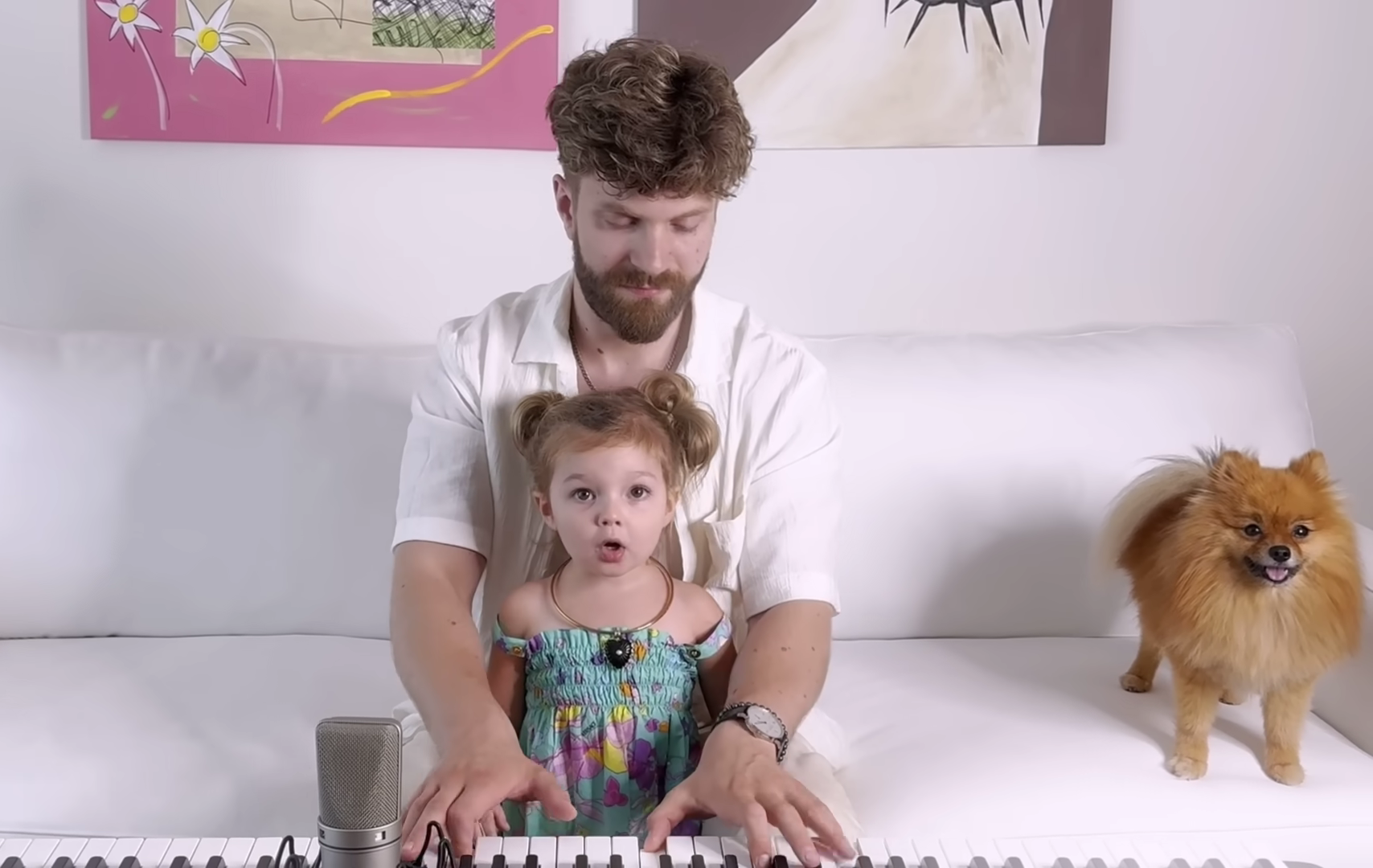In the hallowed, sun-drenched silence of a rustic Italian workshop, where motes of dust dance in the air like forgotten musical notes, the gnarled yet graceful hands of master luthier Emilio Piano hover over a freshly strung violin, its wood still whispering of the forest; this moment of anticipatory quiet is shattered—or rather, gloriously sanctified—by the piercing, impossibly pure soprano of three-year-old Angelica, who, clutching the hem of her nonna’s apron for courage, launches into the opening phonemes of “My Heart Will Go On” with a breathtaking, untamed vulnerability. A slow-motion alchemy begins: Emilio’s eyes, crinkled at the corners from a lifetime of squinting at spruce grain, snap shut in profound concentration as his bow, an extension of his very soul, meets the strings, not with the schmaltzy orchestration of the original, but with a raw, gut-wrenching tremolo that seems to pull the very melody from the child’s lungs.
Every faint, breathy catch in Angelica’s tiny voice—the slight warble on “every night in my dreams,” the triumphant, off-key belt on “near, far, wherever you are,” the way she mispronounces “will go on” as “will go-don”—is not a flaw to be corrected, but a sacred text to be illuminated by Emilio’s answering violin, which weeps, soars, and harmonizes around her like a guardian spirit, his callused left fingers flying across the fingerboard to create a counter-melody of cascading, crystalline notes that catch the light as beautifully as the single, fat tear tracing a path through the sawdust on his cheek.
The performance is a fleeting, perfect universe contained within three minutes: the scent of varnish and old wood, the visual contrast of his worn, brown leather workshop apron against her frilly, pink dress, the sound of her small shoes scuffing the stone floor on the final, powerful sustain, and the way the last, shimmering note from his instrument hangs in the air between them long after she has finished, a testament to an unspoken, generational dialogue where technical mastery bows down to, and is utterly completed by, the fearless, unvarnished power of a child’s heart.
The recent viral phenomenon of a three-year-old singer “shocking everyone” is far more than just a cute clip; it is a captivating and unfiltered glimpse into the pure, primal origin of music itself. Unlike a trained performer, this child is not singing for applause or approval, but from a place of pure emotional expression, their tiny voice often wavering with a raw, breathtaking honesty that professional singers spend years trying to recapture.
The true shock isn’t merely the accuracy of the notes, but the profound and unexpected emotional weight they carry—a reminder that the power of a song lies not in perfected technique, but in the authentic connection to joy, sorrow, or wonder, emotions this child embodies without a filter.
In their innocent performance, we are not just charmed; we are quietly humbled, witnessing the unblemished soul of artistry before the world has had a chance to teach it how to be anything but true.
